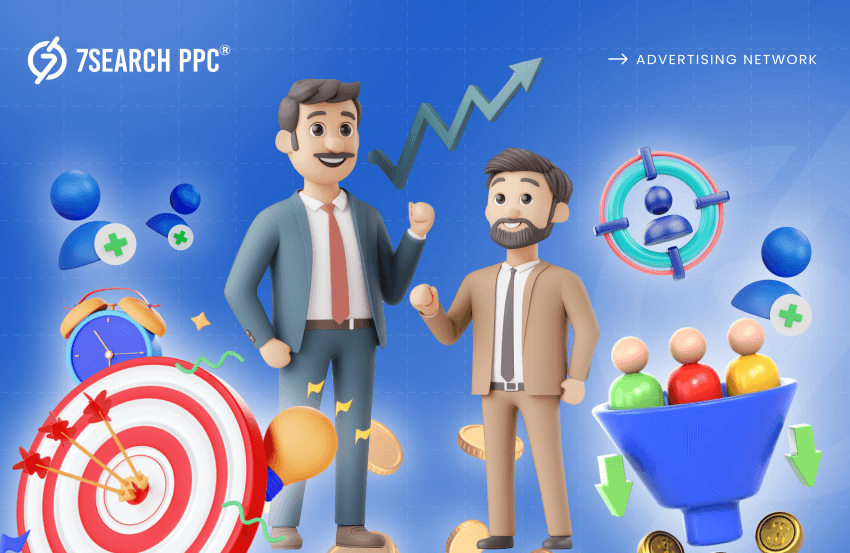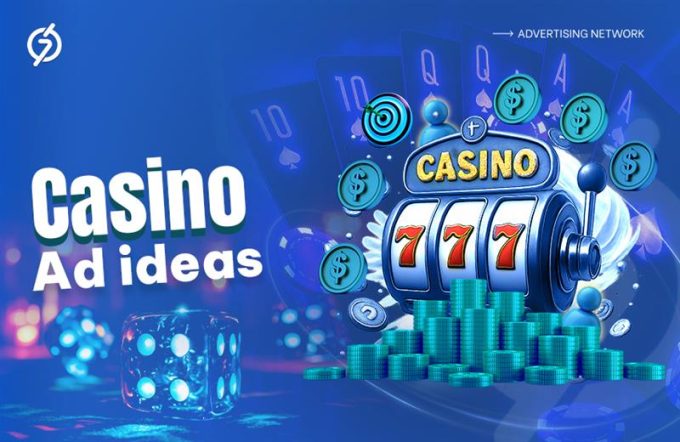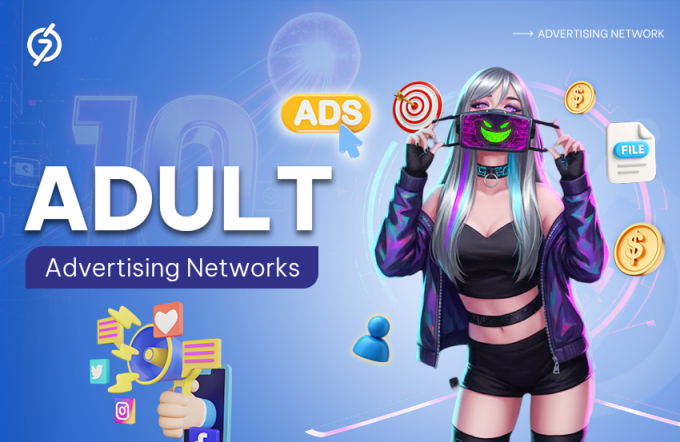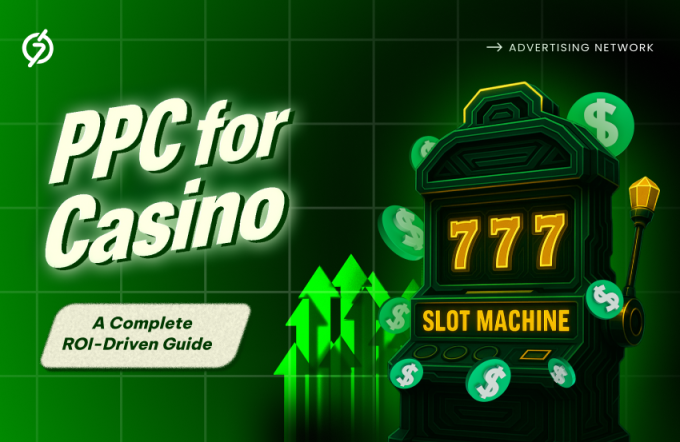B2B performance marketing is different from other kinds of marketing. Today, we will see how that is. So, this blog is going to be pretty interesting. You will learn what B2B marketing is and how it works.
Along the way, we will also discuss some strategies that can be applied to get effective results from B2B marketing. So, let’s get ready to dive into this fantastic blog.
What is Performance Marketing?
Performance marketing can be defined as a marketing approach that focuses on achieving tangible results, such as leads, conversions, and sales. This is different from traditional marketing in the sense that traditional marketing primarily focuses on enhancing brand awareness and reach.
Performance marketing involves methods that can enhance sales and ROI (return on investment). Unlike in traditional marketing, in performance marketing, advertisers have to pay only for the fulfilled actions. These actions include clicks, conversions, leads, etc.
Pricing Models For Performance Marketing
Performance marketing is about measurable metrics. It mainly uses the following pricing models:
CPM (Cost-Per-Mille) Pricing Model
The CPM pricing model is best suited for businesses whose primary focus is increasing their visibility without stressing about getting as many clicks as possible.
CPC (Cost-Per-Click) Pricing Model
The CPC pricing model is probably the most famous. Its functionality is clearly implied by its name. The CPC model works on the principle that the advertiser has to pay a certain amount to the publisher every time their ad is clicked. It is used by businesses that want to increase their engagement and visibility.
CPA (Cost-Per-Action) Pricing Model
This pricing model allows advertisers to bid on several actions, such as form submission and sign-up.
B2B Performance Marketing
B2B in B2B marketing stands for “business to business.” Now, let’s understand what B2B marketing is. B2B performance marketing involves business between different businesses. In other words, one business sells its products or services to other companies.
Generally, the owners or high authorities of the companies buy from different businesses. The main aim of B2B marketing is to familiarize other businesses with your business so that they can become your regular customers.
B2B Vs. B2C Performance Marketing
Now, let’s understand the difference between B2B (business to business) and B2C (business to consumer) performance marketing:
B2B Marketing
B2B marketing is an approach in which a business sells its products to an individual or group that represents its organization. Thus, the individual or group purchases on behalf of their organization; they do not make purchases for themselves.
Some examples of B2B marketing are an ad network that provides advertising services to its buyers, a business that leases working spaces to freelancers and other businesses needing spaces, etc.
B2C Marketing
B2C marketing can be defined as a marketing approach in which a business sells its products or provides its services to people who buy or use those for themselves. That’s why it’s called B2C marketing.
Some examples of B2C marketing are a shopping store that sells various products to individuals, a music platform that sells subscriptions for streaming music to individuals, etc.
Strategies For B2B Performance Marketing
Let’s discuss some strategies that can be used for effective B2B marketing:
1. Search Engine Optimization (SEO): Search engine optimization is the most effective and fundamental strategy for enhancing engagement for your B2B business. This includes optimizing your content by using high-ranking and relevant keywords.
You should always remember that you have to maintain the readability of the content while using these high-ranking keywords.
2. PPC (Pay-Per-Click) Advertising: PPC advertising is a kind of digital marketing strategy that involves the advertiser (the business that needs to promote itself through ads) paying a certain amount to the publisher (the business that gets paid for placing the advertiser’s ads on their site) every time their ad is clicked. PPC advertising has the potential to give instant results. There are many kinds of PPC advertising, such as text advertising, banner advertising, and native advertising.
3. Social Media Marketing: It is no surprise that social media has become prevalent these days. Thus, a B2B company needs to promote itself on various social media platforms, such as Meta (Facebook), Instagram, and X (Twitter), in order to stay in the game.
4. Influencer Marketing: “Influencer” is a fancy term for a person with a decent following on social media platforms. These influencers can help you promote your B2B organization for a fee. Obviously, this fee is negotiable.
5. Search Engine Marketing (SEM): Search engine marketing is nothing but an amalgamation of search engine optimization and paid advertising. Thus, SEM uses strategies that are used in both search engine optimization and paid advertising.
All of these strategies are digital marketing strategies for promotion.
Tips And Ideas For B2B Performance Marketing
1. Define Your Goals: The most fundamental thing is to have clear goals. You must ensure that you stick to these goals because there is no use in having goals if you don’t follow them properly.
2. Get An Understanding Of The Journey Of A B2B Buyer: Another crucial thing in a marketing campaign is to identify your buyer’s journey so you can have an idea of what marketing strategies need to be devised and implemented at various stages of the buyer’s journey. You can create a buyer’s journey map in order to understand his/her journey better.
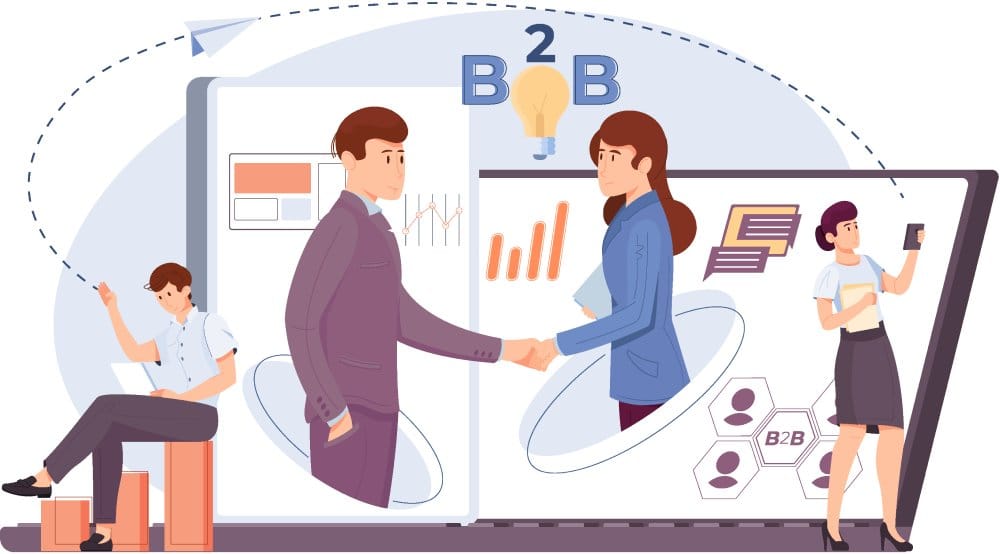
3. Identify the Target Businesses: Just like in B2C marketing, you need to identify your target audience in B2B marketing as well. The only difference is that in B2C marketing, individuals are your target audience, and in B2B marketing, your target audiences are businesses and companies. Let’s discuss how you can identify your target audience (businesses) in B2B marketing. You should identify your target companies based on the company’s:
- Size (small, medium or large)
- Location
- Number of employees
- Revenue or sales
- Industry (finance, healthcare, etc.)
4. Choose Your 4 P’s Judiciously: The next important thing is to choose your 4 P’s of marketing after proper thinking and planning. Let’s discuss these 4 P’s of marketing briefly:
- Product: The product you sell.
- Price: The cost you decide for your product.
- Place: The location where you decide to sell your product.
- Promotion: Ways through which people can know about your product in detail.
5. Create A Suitable Marketing Strategy: It is crucial to have a proper marketing strategy for promoting and selling your product. This is because, in a particular case, social media marketing might be more suitable than email marketing, while in some other cases, vice versa could be the case.
6. Keep Your Website Updated: First of all, at present, it is very important to have an online presence (the most fundamental thing is to have a website). It is also crucial to keep the content of your website refreshed and updated.
7. Use Analysis Tools: It is very important to analyze your marketing strategies periodically. Data analysts can do this with the help of certain analysis tools.
8. Keep An Eye On Your Competitors: The next tip is to have a proper idea about your competitors. You should know what they are doing to attract the audience that you are not. Then, you can act accordingly to attract more companies to your business.
9. Choose A Good Ad Network: Finally, you should choose an ad network that can effectively promote your business’ ads. Some points you should keep in mind while looking for an ad network:
- Your Goals: You should define your goals properly before looking for an ad network. Your goal could be increasing your business’s visibility, enhancing engagement, or something else.
- Research: You should thoroughly research several ad networks to choose the one that is most suitable for you. Your research should be based upon various factors, such as the average experience and expertise of the employees working at the ad network, as well as clients’ testimonials of the ad network.
- Transparency: A good ad network is always transparent about its information and how it works. You should always keep that in mind.
- Effective Return On Investment (ROI): You should explore several ad networks and choose the one that offers the best ROI.
- Analysis Tools: A good ad network also offers analysis tools for the analysis of your ad campaigns.
Conclusion
Performance marketing is different from traditional marketing. Unlike traditional marketing, it focuses more on enhancing the ROI and sales of a business than enhancing its visibility and reach. B2B and B2C performance marketing are very different. B2B marketing involves trading between companies, while B2C marketing involves trading between a business and its individual customers.
There are some tips and tricks to keep in mind when creating an effective B2B marketing campaign. These tips include defining your goals, having an understanding of your potential customer’s journey, identifying the target business, creating a suitable marketing strategy, etc.
Frequently Asked Questions (FAQs)
How is performance marketing different from traditional marketing?
Ans. Traditional marketing focuses on methods that enhance brand awareness and visibility. On the other hand, performance marketing focuses more on methods that enhance ROI and sales.
What are the 4 P’s of marketing?
Ans. The 4 P’s of marketing are:
- Product: What is the item you sell?
- Price: What is the cost of your item?
- Place: Where are you going to sell your product?
- Promotion: How will people know about your product?
What is the importance of understanding the buyer’s journey in B2B marketing?
Ans. By understanding the journey of the buyer, you can effectively decide what marketing strategy to implement at different stages of their journey.

